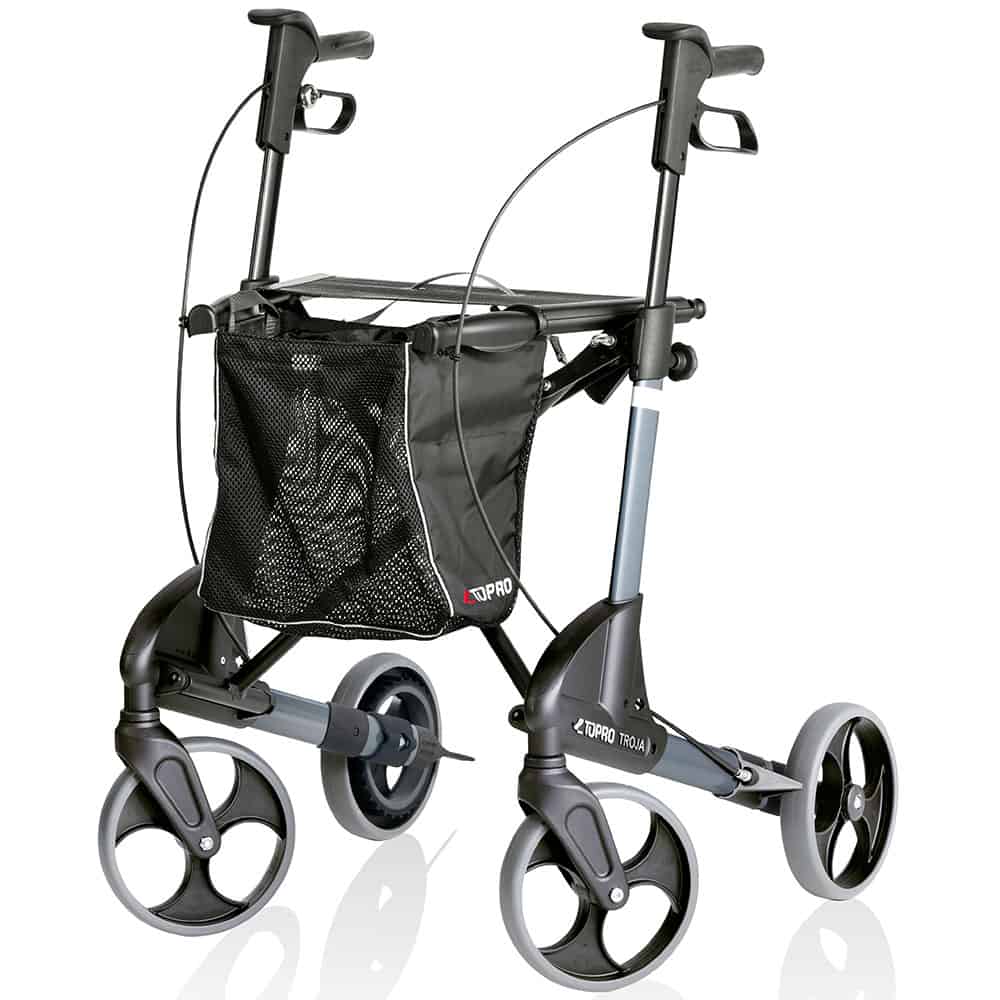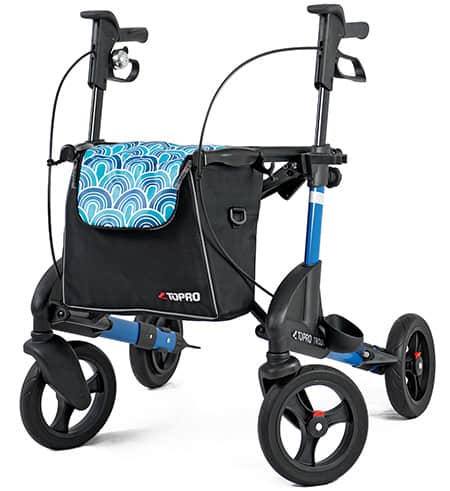Guest Article: What to consider when assessing a client for a rollator


How can rollators benefit users’ mental health and well-being?
Rollators can enable someone to get out of the house, give them independence and give them the opportunity to exercise and do other tasks such as shopping. Rollators also allow individuals to connect with friends and family outside of the house and allow them to visit places they perhaps would not have been able to do without the rollator. The mobility device gives security when walking with it which gives the user confidence.
What are the most common misconceptions healthcare professionals and clients have about rollators?
The most common misconception we find is that they think there is only one type of rollator available to them which are a standard size, weight and height. This could not be further from the truth.
We try to educate healthcare professionals, retailers and the general public that we can find a rollator to suit the client’s personal requirements rather than people having to tailor their lives around the limitations of the rollator.
Do you recommend all people have an assessment prior to purchasing a rollator?
We do, yes. Every client has different requirements and it is not a simple case of one size fits all. We offer training to OTs and physiotherapists, and have loan stock available for the NHS. We are also working on a CPD training course which we hope to launch in later in 2019 and more information will be available on this prior to, and on our stand, at The OT Show in November.
 When assessing someone for a rollator, what should the healthcare professional take into consideration?
When assessing someone for a rollator, what should the healthcare professional take into consideration?
It is vital that assessments cover posture, weight, walking pattern, practicality and what limitations the client may have with regards to what they can and cannot do. It is also important to consider the client’s individual needs and where the rollator will be primarily used as this can affect which model will best suit them.
Depending on their level of mobility, the client may use their rollator indoors, outdoors, for shopping or gardening and these all need to be taken into consideration during the assessment.
Are there any common things that get missed during an assessment?
During assessment, it is not only about ensuring people are walking correctly and their posture and walking pattern are satisfactory, but looking at how and where they will be used. Do they need to be lifted into a car or are there steps to be considered outside their home? It is also important to find out what surfaces the rollator will be used on, such as pavements, gravel and grass.
Does someone from Topro attend assessments?
If we are asked to attend, we absolutely will to ensure the client gets the right product advice and the opportunity to try the product in the environment in which they will be using the rollator. Over the years, I have conducted assessments which have included everything from dog walking and shepherding sheep to gardening and many more scenarios.
How have you seen rollators evolve over recent years?
There is far more choice available these days which means more people can now find a rollator to meet their individual requirements. In terms of design, rollators are far more ergonomic and aesthetic which means that more people are looking to use them as a daily living aid as they no longer look as ‘medical’ as they used to.
With ever-changing demands and technology, what do you think will be the next ‘big thing’ in rollators?
Carbon is the key word in 2019. Clients are always looking for quality rollators which are also as lightweight as possible and carbon is helping manufacturers to achieve this, as is the case with many independent living solutions on the market these days.
About Paul
Having been in the mobility industry for over 20 years and with Topro for nine years, Paul Briggs has built up a pretty comprehensive knowledge of products and database of contacts. He enjoys the daily interaction with healthcare professionals, retailers and users along with the challenge of keeping up with changes and requirements from all parts of the industry.
Socially, Paul enjoys most sports, including NFL, football and cricket; music; and going to concerts. He has several concerts lined up, including The Cult, Perry Farrell, Jesus Jones and The Wonderstuff.


 When assessing someone for a rollator, what should the healthcare professional take into consideration?
When assessing someone for a rollator, what should the healthcare professional take into consideration?